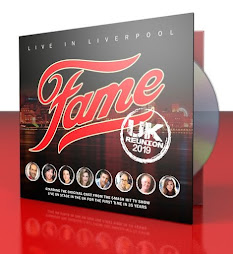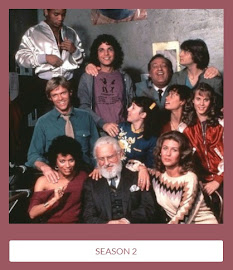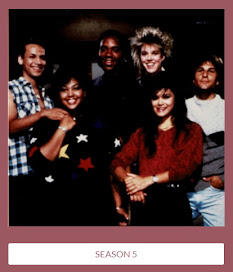February 12, 2010
I don’t get too many celebrity commenters on this site — except if you count the president of the American Medical Association. So it’s no surprise that when Barry Miller, known for his star-turn as Ralph Garcy in the original Fame (1980), started commenting anonymously on my blog, I would fail to notice.
Miller had a huge beef with last year’s Fame (2009), a disgust he broached in a USA Today article about the original cast. But while Miller declined a formal interview to USA, he left his thoughts, under the name Johnny Lagoon, all over my blog.
And they are interesting!Miller was mainly concerned with what he sees as the diluting of the original Fame, a shift reflecting broader cultural shifts, in which the desire for “celebrity” becomes an all-consuming task, where young people lack the critical distance to critique the system and corporations that produce fame for their own ends ($$$). Said Miller:
For thirty strangely obsessive years, Hollywood began producing imitative versions of the 1980 Alan Parker original, whose subsequent puffed-up aspirational agendas were an attempt to rebuke every single element of a commercially successful product that in the most direct and compellingly dramatic way spoke to it’s audience about the false spectacle and lethally toxic consequences of the very same Hollywood system that had made it….a voluptuous anomoly only afforded to that generation of young people who existed in that brief moment of time before the rise of Reagan and the age of the computer.
Yet I will acknowledge a shift in the 1980s, as the number of films released every year steadily, the age of the Internet began in slow motion, the stock market started to boom and the promise of quick and easy wealth seemed as tantalizing as ever.
Barry Miller (above) as Ralph Darcy in the original, in a scene marking his fall from grace. Collins Pennie (below) tears it up in the remake.
W
hat Miller — and likely Alan Parker — is calling for is the kind of cynicism (or, more generously, skepticism), bred of the economically stagnant and politically demoralized 1970s, before the boom, from whose polluted soil Fame (1980) was born:
Obamasized, Twitterized, and Homogenized into it’s safe PG-13 demographic, there will be no lines of dialogue accusing God of being an idiot or Santa Claus of being a thief, no tears of rage about the horrors perpetrated on a child because of the consuming evils of poverty and malevolent parental jealousy, no crucifix flung in the face of a priest, no angry monologue about trying to come to terms with the violent suicide of a Hollywood star, no snuffing out of potential through the self-destruction that lurks at the heart of the American Dream.
It was easy to talk about the death of the American Dream in 1980. But that was a fleeting moment. Indeed, in my CliffNotes version of history, Ronald Reagan sweeped the country in 1984 by claiming it was “morning in America again.” We had woken up from the nightmare and the dream was alive. Fresh with tax cuts and ballooning corporations, we became obsessed with the Lifestyles of the Rich and Famous. In 1980s, Ien Ang found a great deal of inner turmoil among fans of Dallas, that televisual pillar to American excess; loving the rich brought on a good amount of guilt. But conspicuous wealth and success have become commonplace on television. Dirty Sexy Money was supposed to be a guilty pleasure, but ABC failed to realize no one feels guilty anymore watching the elite. We believe we’ll be them someday. At least that’s how the theory goes.In 2010, however, the 1980 moment may yet be upon us again. With the aughts behind us, critics now widely characterize the decade as a lost one. It’s starting to feel like the 1970s again. From 1970 to 1980, the Dow Jones Industrial Average had barely inched higher, but from 1980 to 1990, it had about tripled, and did so again from 1990 to 2000. The 2000s brought no growth whatsover, for the economy or for workers. Paul Krugman called it The Big Zero. Hardly fertile ground for optimism.
The remake kept the original’s focus on grit and self-motivation, but with a much rosier perspective
Of course, Miller isn’t upset about Fame‘s unremarkable stint in U.S. theatres:
MGM got exactly what they deserved. Let it stand as a testament to the fact that unlike the admonishment of the drama teacher in the remake who boldly proclaimed that there is no room for anger in the theatre, that it was precisely that anger that made the 1980 film a classic and the censorial removal of it within the 2009 version that doomed it to failure.
I sense a return to a happy medium, a kind of sobriety where we realize how rare and fleeting fame is, except for the very few, while still seeking it as avidly Ponce de León sought the Fountain of Youth.













































No comments:
Post a Comment